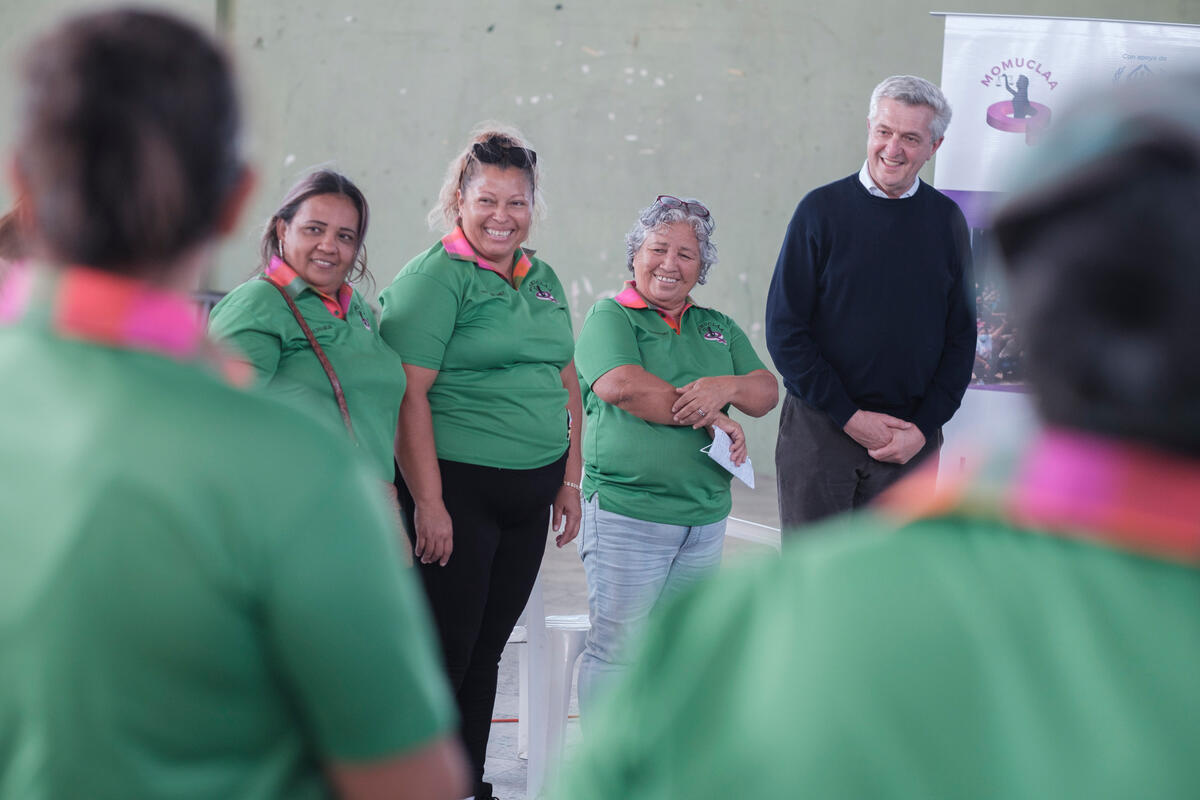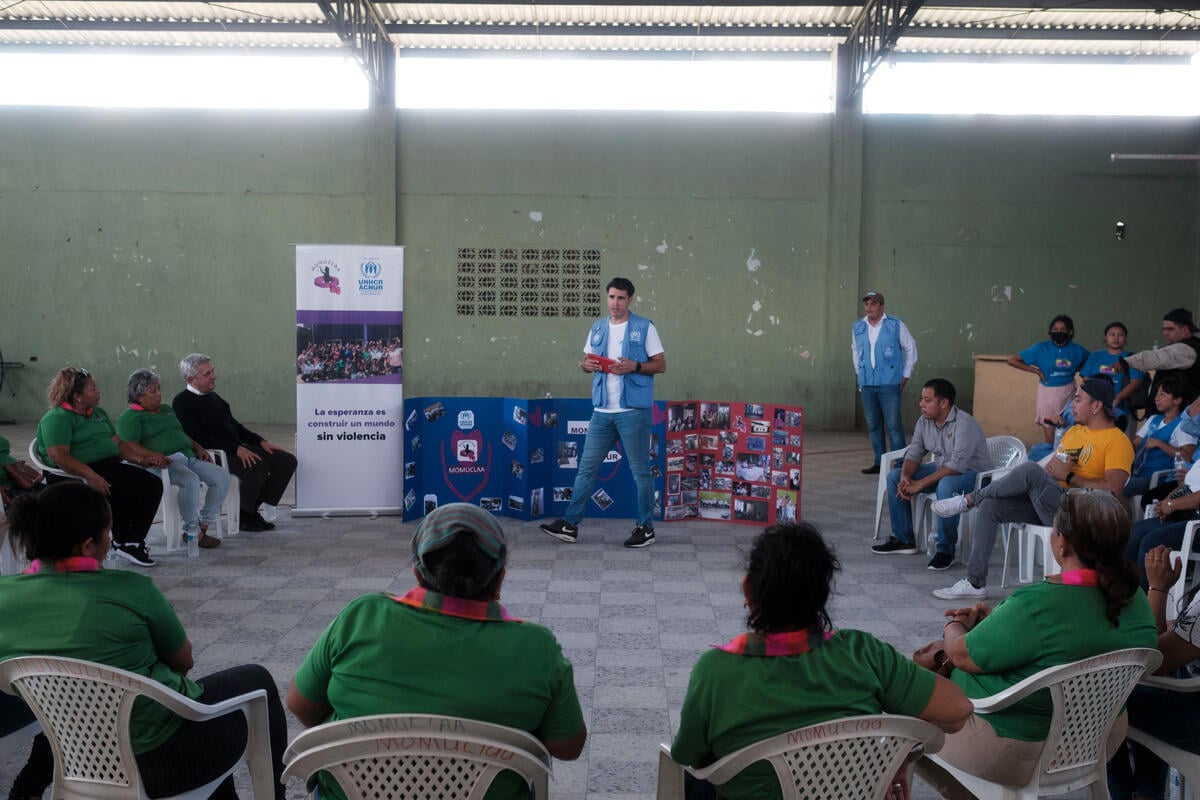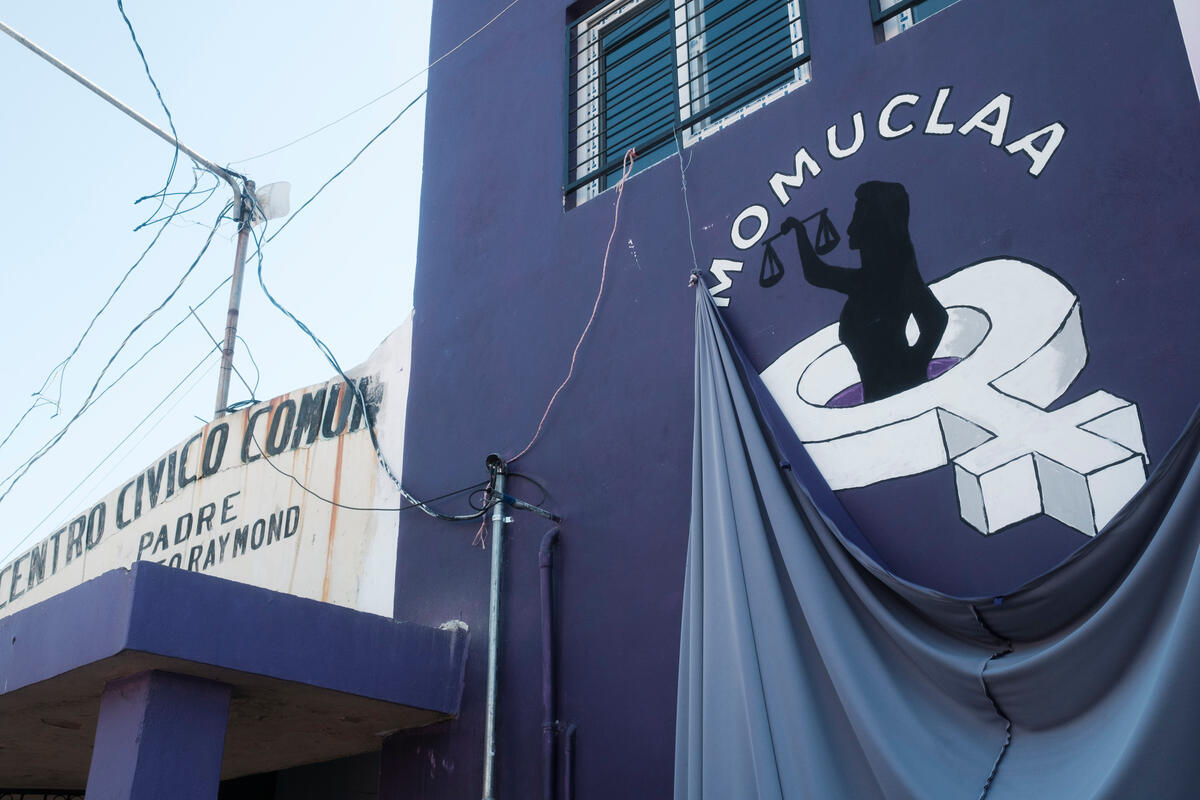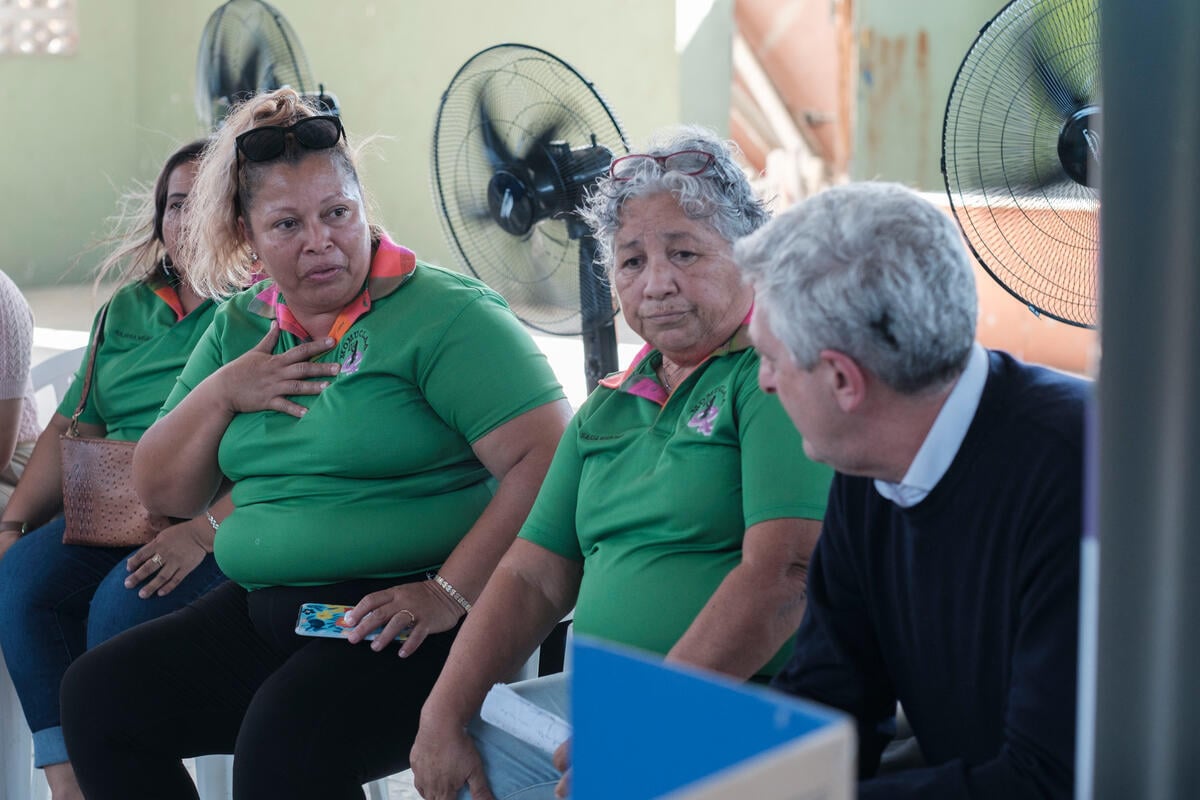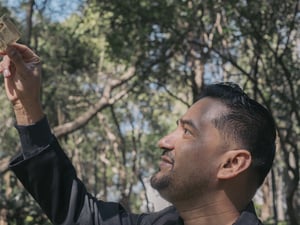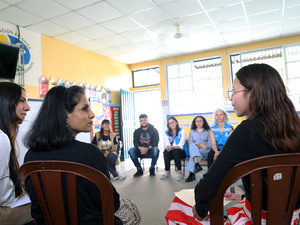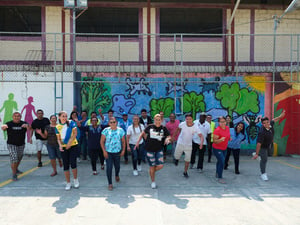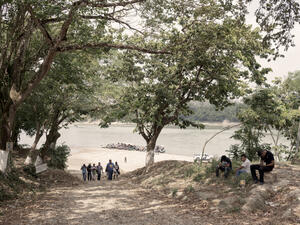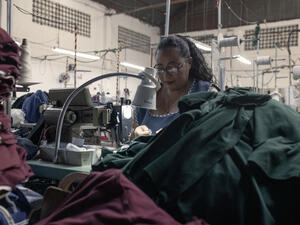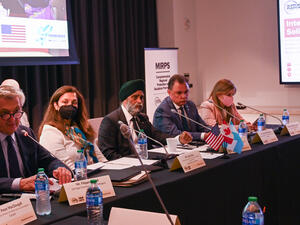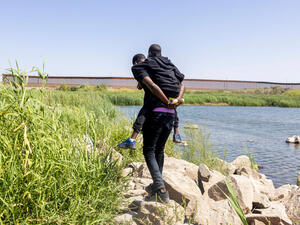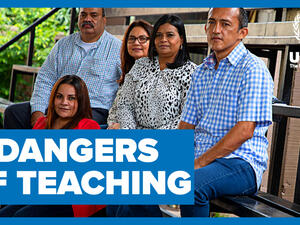Despite multiple displacements, Honduran woman emerges as a pillar of her community

Despite multiple displacements, Honduran woman emerges as a pillar of her community
For Laura,* tragedy had threatened to become the defining theme of her life, with one horrifying incident leading to another in a seemingly unending cycle of violence and displacement.
So it was when her brother was murdered, in the family’s native San Pedro Sula, Honduras, in 2003. Because his killers suspected that Laura knew their identity, she was forced, shortly after his funeral, to flee for her own life, leaving her five small children behind with relatives.
That time, other families’ tragedies allowed her to make a quick return: Her brother’s killers were themselves killed just one month later.
But for Laura, that initial displacement was the start of what would become a pattern, with sudden spasms of violence upending her life and forcing her to flee.
“We have to flee to save ourselves and our children.”
“It’s a very difficult experience to have to leave your country or your home on account of what’s going on in the neighbourhood, but unfortunately these people (the gangs) are in control... and they can do pretty much anything,” said Laura. “Sadly, we have to (flee) to save ourselves and our children.”
Laura is not alone. The terrifying violence meted out by “pandillas,” or criminal gangs, has forced hundreds of thousands of people in this Central American nation to flee, both to other countries and within Honduras’ borders. A government study suggested that gangs’ forced recruitments, extortion, restrictions on residents’ freedom of movement, sexual violence, and other forms of violence have resulted in the internal displacement of more than 247,000 Hondurans between 2004-2018. More than half of those displaced were women, and 43 per cent were children and adolescents.
Internal displacement deprives those affected not only of their peace of mind, but also often of their livelihoods, families, and everything they have built in life. Internally displaced people often struggle to cope psychologically with the trauma not only of leaving everything behind, but also of being suddenly plunged into uncertainty and poverty.
The Honduran Congress is currently debating a bill which, if passed, would mark a major landmark in protecting the rights of the internally displaced in Honduras. The legislation would create the foundation for delivering long-term, sustainable solutions for those displaced.
In a recent visit to Honduras, the first stop on a three-country visit to Latin America that also included stops in Colombia and Ecuador, United Nations High Commissioner for Refugees, Filippo Grandi, met with the head of Honduras’ Congress to underscore the significance of the bill. He also met with internally displaced families both in Honduras and in Colombia, which, with some 6.7 million internally displaced people, has the second largest internally displaced population in the world, after Syria.
UNHCR is working throughout the Americas to bring stability and hope to internally displaced people by helping provide not only the emergency aid they need in the immediate wake of their displacement but also medium- and long-term solutions aimed at allowing them to rebuild their lives.
Laura, the Honduran mother of five, was forced to flee again some nine years after her initial displacement. Like the first time, it arrived like a bolt out of the blue.
One afternoon in 2012, she was sitting on her porch, in Choloma, a city on the outskirts of San Pedro Sula, when shots rang out nearby. She quickly realized that members of the gangs that operated in the area were executing people. She ran for cover but got caught in the crossfire.
She was hit in the arm.
Thankfully, a neighbour realized what had happened and jumped immediately into action, bundling Laura into her car and spiriting her to the local hospital.
“The doctor said if I had arrived five minutes later, I would have died because I lost so much blood,” she recalled.
But while her life was spared, Laura’s ordeal was far from over: As had happened when she received death threats in the wake of her brother’s murder, the certainty dawned on her, there in the hospital, that once again she would not be able to return home.
Upon her release from the hospital, Laura fled to a distant neighbourhood, finally venturing home and back to her life, her kids, and a much-dilapidated house some months later.
Laura credits a women’s organization she joined as part of her bid to escape the abusive relationship with the father of her five children with giving her the fortitude to weather the repeated tragedies and displacements.
Members of the group, which is known by its Spanish-language acronym, MOMUCLAA, reached out to Laura, providing her with much-needed support, including emergency mental health services and seed money to launch her own business.
Founded in 1993, MOMUCLAA has been working to help the women of the gang-controlled López Arellano neighbourhood escape from violence and respond to the desperate situations that fuel forced displacement – which also disproportionately affects women and children. UNHCR, the UN Refugee Agency, provides financial and technical support to the organization.
“I love being able to attend to women and help them.”
“The incomparable value of community groups and civil society organizations resides in their ability to provide stability to those who are forced to flee,” said Andrés Celis, UNHCR’s Representative in Honduras, adding that Laura’s own story highlights how organizations such as MOMUCLAA can help survivors find strength in tragedy. “Out of a life of apparently constant movement, Laura has found stability by serving those who are in similar situations.”
Laura now supports herself and her family through her costume jewellery business and has grown from a person in need of help to one of the pillars of MOMUCLAA, providing critical support to other women.
“I love being able to attend to women and help them,” said Laura with a broad smile. “Now I give back what I received from MOMUCLAA because they made me the woman I am now. I’m proud to be the person I am today.”
*Name changed for protection reasons.

